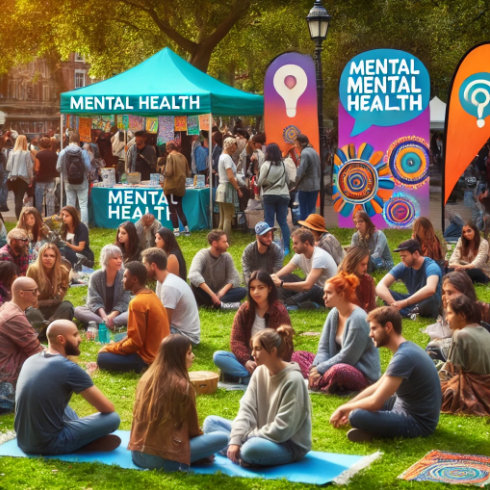The Importance of Mental Health Awareness in Today’s Society
Introduction
In recent years, mental health has emerged as a critical aspect of overall well-being, gaining recognition alongside physical health. The World Health Organization defines mental health as “a state of well-being in which every individual realizes his or her own potential, can cope with the normal stresses of life, can work productively and fruitfully, and is able to make a contribution to his or her community.” Despite the increasing awareness, misconceptions about mental health issues persist, often leading to stigma and inadequate support for those affected. This article explores the importance of mental health awareness, its impact on individuals and communities, and the strategies we can employ to promote understanding and support.
Understanding Mental Health
Mental health encompasses emotional, psychological, and social well-being. It affects how we think, feel, and act, influencing our decision-making, stress management, and interpersonal relationships. Common mental health disorders include depression, anxiety disorders, schizophrenia, and bipolar disorder. According to the National Alliance on Mental Illness (NAMI), approximately one in five adults in the U.S. experiences mental illness in a given year, highlighting the urgency of addressing this public health issue.
The Impact of Mental Health on Daily Life
Mental health issues can significantly impact various aspects of life. They can lead to difficulties in maintaining personal relationships, reduced work productivity, and a decline in physical health. Research shows that individuals with chronic illnesses are more likely to experience mental health problems, creating a cycle that exacerbates both conditions. Additionally, untreated mental health disorders can lead to serious consequences, including self-harm and suicide.
Stigma and Misconceptions
Despite advancements in understanding mental health, stigma remains a significant barrier to treatment. Misconceptions about mental health often perpetuate negative stereotypes, leading individuals to feel shame about their conditions. For example, many believe that mental health issues are a sign of weakness or that those who suffer from them are dangerous. These beliefs can prevent individuals from seeking help, leaving them to struggle in silence. Personal stories from those affected by mental health issues can help illuminate the harsh realities of stigma and encourage open dialogue.
The Role of Education in Mental Health Awareness
Education is a powerful tool in combating stigma and promoting mental health awareness. Schools and workplaces are critical environments for implementing mental health education programs. These programs can teach individuals about mental health, coping strategies, and available resources for support. Early intervention is crucial; research indicates that early treatment can lead to better long-term outcomes. For instance, teaching children about emotions and resilience can foster a healthier mindset as they grow.
Promoting Mental Health Awareness
Community initiatives and campaigns play an essential role in promoting mental health awareness. Events like Mental Health Month and World Mental Health Day encourage communities to engage in discussions and activities that raise awareness. Social media has also become a vital platform for sharing resources, personal experiences, and educational content. By normalizing conversations about mental health, we can foster a culture where seeking help is viewed positively rather than as a sign of weakness.
Resources for Support
For individuals struggling with mental health issues, access to resources is crucial. Various organizations offer support, including hotlines, therapy services, and support groups. The Substance Abuse and Mental Health Services Administration (SAMHSA) provides a national helpline, offering confidential assistance 24/7. Encouraging individuals to reach out for professional help can lead to significant improvements in their quality of life.
Conclusion
Mental health awareness is vital for building healthier communities and promoting individual well-being. By understanding mental health, addressing stigma, and implementing educational programs, we can create an environment where everyone feels supported and empowered to seek help. As advocates for mental health, we must engage in discussions, share resources, and challenge misconceptions. Together, we can make a significant impact on mental health awareness, leading to a society that values and supports mental well-being.
Suggested Sources
Books:
- van der Kolk, Bessel. The Body Keeps the Score: Brain, Mind, and Body in the Healing of Trauma.
- Hari, Johann. Lost Connections: Uncovering the Real Causes of Depression – and the Unexpected Solutions.
Articles:
- “Stigma and Help-Seeking for Mental Health Issues: A Review of the Literature,” Psychology Today.
- “The Importance of Mental Health Education in Schools,” National Association of School Psychologists.
